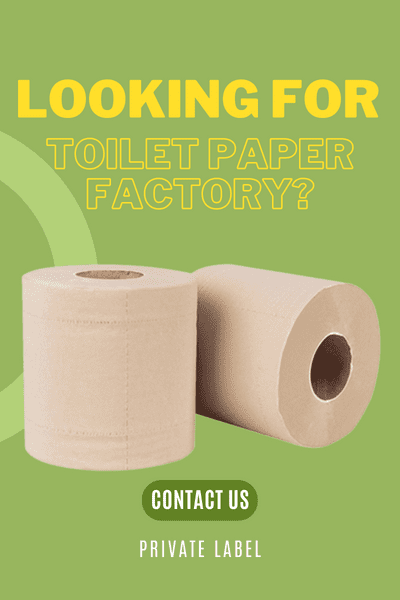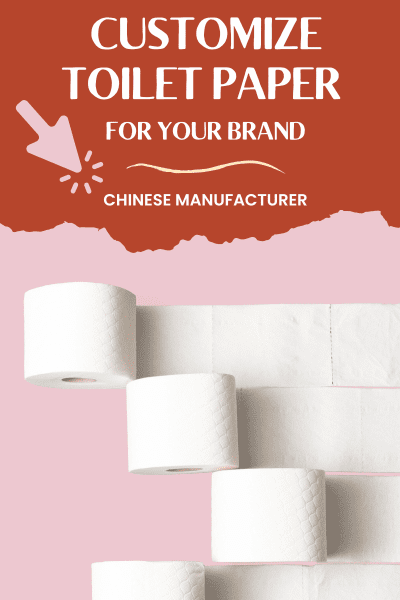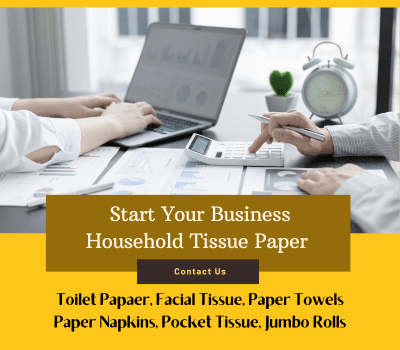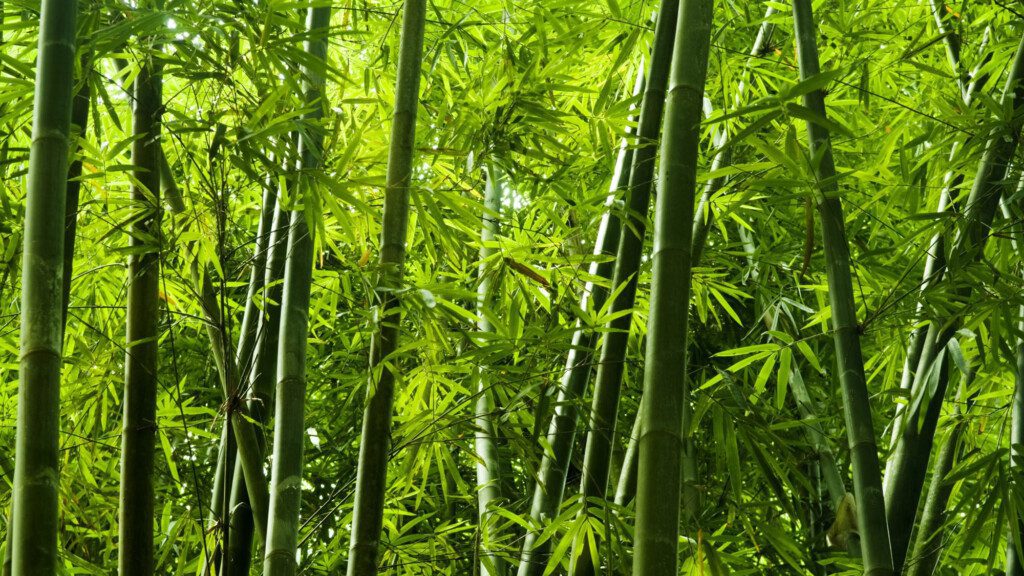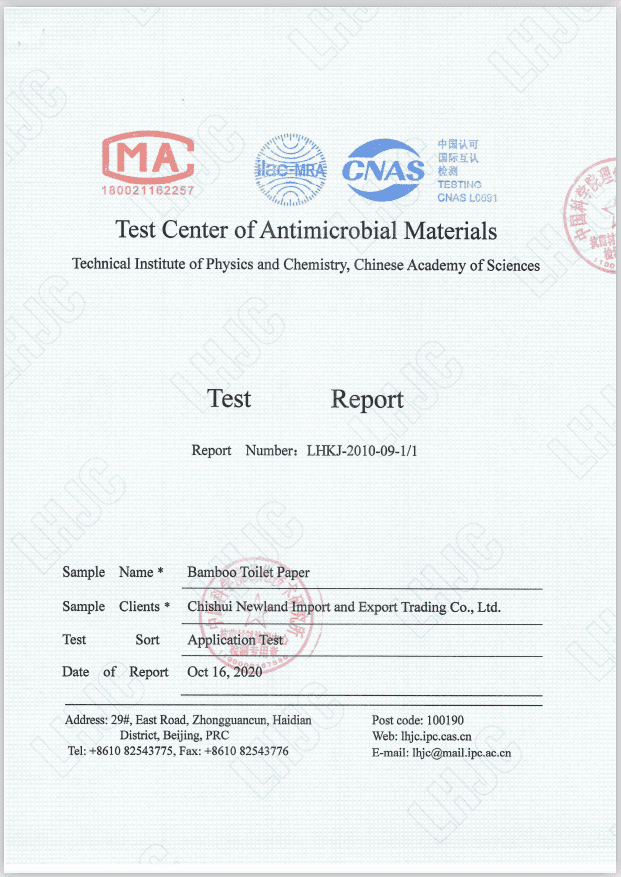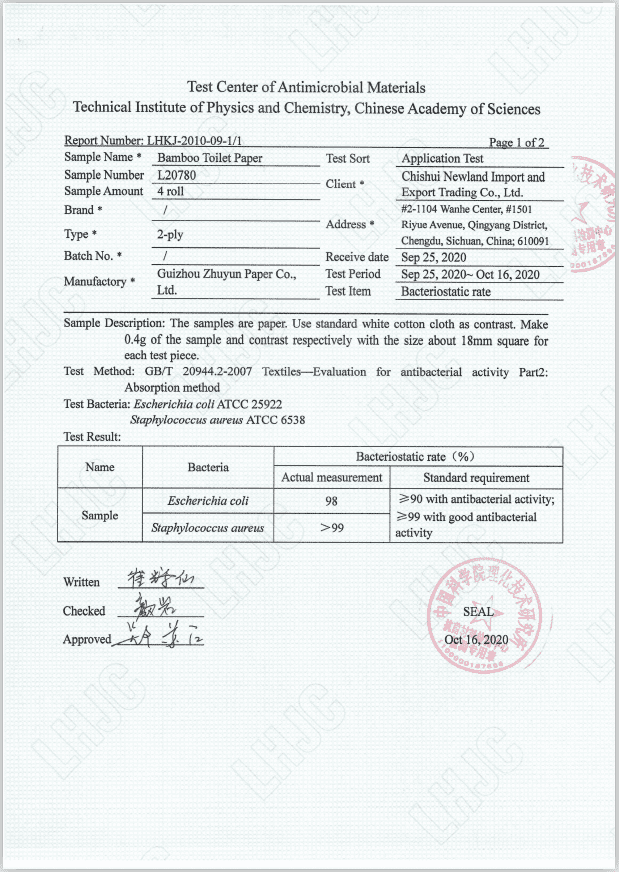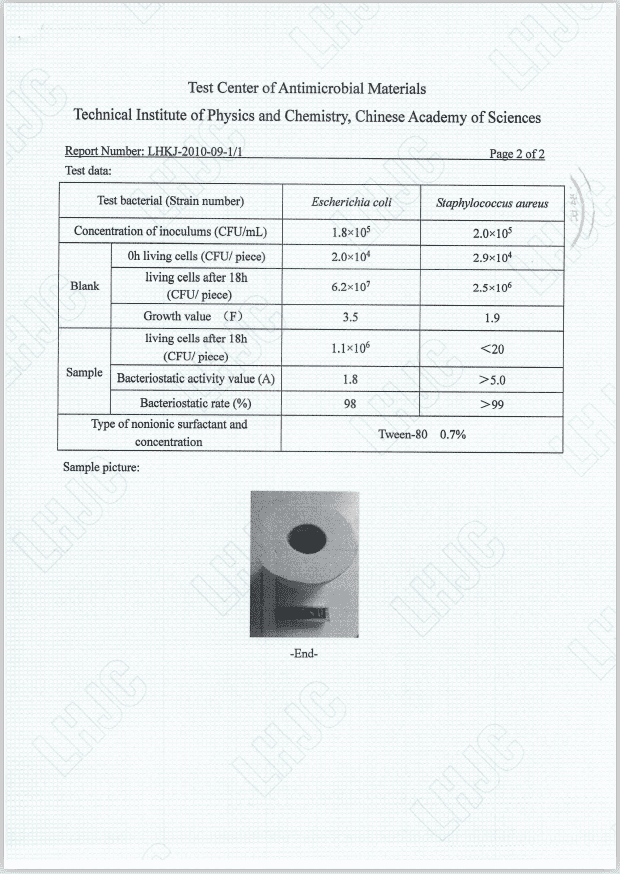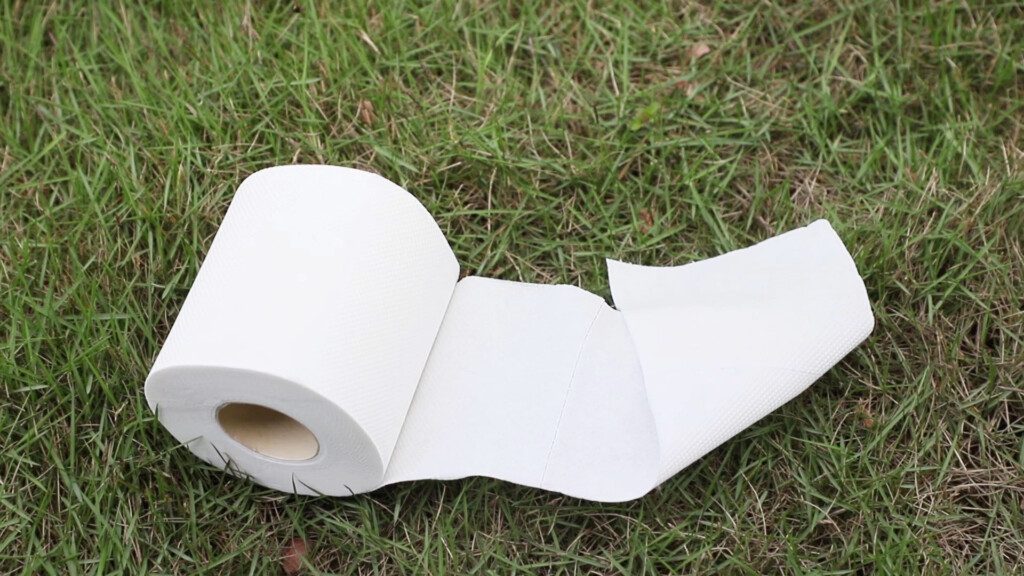Question: Why Bamboo?
Bamboo is the fastest growing plant, absorbs more CO2, and offers multiple environmental benefits. It’s a highly renewable resource, used in various industries, including paper manufacturing. Bamboo toilet paper, with its soft texture, biodegradability, and sustainability, is becoming a top choice for eco-conscious consumers and businesses alike.
Bamboo is one of the vehement ecosystem and environment protectors and an able substitute for trees in the production industry. Bamboo and its products, especially bamboo toilet paper, are becoming increasingly popular, leaving lots of people wondering what the rave is all about.
If you’re one of those harboring the thought “Why bamboo?” Here is all you need to know about this special plant. Before that, let’s have a brief understanding of what bamboo is.
What’s the difference between tree-free tissue and bamboo tissue?
Bamboo isn’t a tree but a herb – a subfamily of bambusoidae of the family Poaceae (grasses) – and the fastest growing plant on earth with a growth rate of 1/3 times than of trees.
Bamboo has almost 1500 species with varying color and growth characteristics. This herb is very much concentrated in the Indian Ocean, Southeast Asia, Pacific Islands, and the tropical & subtropical regions. Of these locations, the characteristics of bamboo are most suited to the tropical climate.
Bamboo is a low-cost maintenance plant with a wide range of applications. These include enamored raw material in medicine, papermaking industry, the building industry, and even in the production of ingredients for varieties of delicious meals.
Why bamboo? 11 benefits!
Bamboo is a naturally renewable raw material with a wide range of use and application. It is a special plant with a series of health and environmental benefits. This special plant is hypoallergenic, offers protection against bacteria, soft & tender, possesses absorbent properties, and so on. This makes bamboo have great economic value in different industries.
1. The Fastest Growing Plant in the World
Bamboo isn’t a tree but a herb – a subfamily of bambusoidae of the family Poaceae (grasses) – and the fastest growing plant on earth with a growth rate of 1/3 times than of trees.
It isn’t rocket science the division, elongation, and enlargement of the meristem cells are responsible for the height and thickness of plants. The position of the meristem varies in plants. Some meristems are located at the stem tip with some at the side of the cambium of plants.
There are also some meristems at the root and most importantly some are located at the base of each stem internode. These intermediate meristems have a strong splitting ability which makes cells divide vigorously and causes rapid elongation under the humid and warm weather in the spring.
With this, every one of the bamboo meristems grows simultaneously and as such, leads to rapid growth. This makes bamboo more sustainable than trees. So bamboo is the ideal raw material, especially in the papermaking industry.
2. Absorb more CO2 and produce more O2
The greenhouse effect should be no news by now as it has been the major environmental talk over the years. To counter this greenhouse effect, it’s important to effectively balance the proportion of oxygen and carbon dioxide in our environment. And this is where bamboo comes into play.
Bamboo is said to give out 35% more oxygen than trees while also absorbing more carbon dioxide. In fact, a hectare of the bamboo plant absorbs 12 tons of carbon dioxide.
3. Bamboo Effectively Repairs and Protects the Soil
Human activities such as deforestation, overgrazing, burning, and backward farming techniques negatively impact the soil. These activities are usually the cause of dreadful natural disasters like floods, desertification, and landslides. Thankfully, bamboo can effectively repair degraded soils and also keep the soil in quality condition.
Bamboo is endowed with a well-developed root system coupled with a large rhizome network. This root actively remains in the ground after bamboo has been harvested and can also retain a large amount of water. This in addition to the soil nutrients maintenance properties of the roots, gives you the perfect plant for the prevention of desertification.
Also, bamboo leaves are rich in soil repairing and enhancing nutrients that help replenish lost nutrients in damaged soils when they fall on the ground. Hence, it is a nice idea to plant bamboo on degraded land to help prevent desertification and other natural disasters.
4. Bamboo products 100% Biodegradable
One of the major environmental impacts of bamboo is all of its products are biodegradable. This means, they effortlessly decompose into soil nutrients with time. This is unlike most other products that cause land pollution and waste lots of resources during the recycling process.
Let’s take bamboo toilet paper as an example.100% bamboo tissue is biodegradable and as such friendly to septic tank systems. Also, it doesn’t require much water and other resources during recycling, making it economically sound.
5. High Renewability and Yield
One of the downsides of trees being used as a raw material is they need to be replanted once cut down. This problem is eliminated with bamboo as it grows quickly after harvesting it (provided it is not uprooted). In fact, bamboo can be harvested annually after it has reached about 7 years of maturation.
This is all thanks to the regeneration properties of the underground roots that allow it to grow new visible shoots a few days after harvesting. In some pretty short species of bamboo, the regenerating plant might grow as tall as the mother plant 10 days after they were unearthed. Hence, proper cultivation of bamboo doesn’t only protect the environment but also promotes the regeneration of bamboo.
To help quantify the importance and advantage of bamboo as a raw material over trees, note that a hectare of bamboo forest produces about 15 times more raw materials than its tree equivalent.
6. Reduce deforestation
With the number of industries benefiting from trees especially the papermaking industry, a whopping 13 million hectares of forest are laid bare every year. To put it more realistically as a fun fact, 13 hectares (32 million acres) is just about the size of Nicaragua or Greece.
Now, substituting wood with bamboo as the go-to raw material saves the forests and the environment from deforestation and its effects. This is because bamboo is being used to produce the majority of products manufactured with trees and other unsustainable raw materials. Some of these products include bamboo toilet paper, bamboo paper cups, building materials, and bamboo toothbrushes.
7. Bamboo Products Have a Realistic Market Growth
With the renewability and super-growth feature of bamboo, it’s no surprise its products have a pretty objective market growth. Research carried out by Grandview research showed that as of 2018, the bamboo market size globally is valued at USD 68.8 billion and is expected to have exponential growth at a CAGR of 5.0% from 2019 to 2025.
The outcome of this research is notable with the increasing emergence of many eco-friendly bamboo products in Europe, the United States, Britain, and other notable markets. A case study is bamboo toilet paper which is the trending search amongst toilet papers in the last five years. Hence, as well as its health and environmental importance, bamboo also offers economic advantages.
8. Bamboo Fibre Possesses Moisture Absorption and Air Permeability Characteristics
One of the user-friendly features of bamboo is its moisture absorption and air permeability. When the absorption characteristics of bamboo were studied under a 2000 times magnified microscope, it was shown to have a cross-section full of oval pores, with strong capillary effect, concave and convex, highly hollow and most importantly can effectively absorb and evaporate water.
Similarly, the moisture absorption and air permeability of bamboo fiber are proven to be the most effective amongst five all-natural fibers. This moisture absorption is especially palpable in bamboo toilet paper as it absorbs water quickly and dissolves in no time.
9. Antibacterial and Bacteriostatic Characteristics
Bamboo is one of the plants with high antibacterial characteristics. It has constituents known as “Bamboo Quinone” which is highly fatal to bacteria. This gives it (bamboo fiber) natural anti-mite, anti-insect, anti-odor, bacteriostatic and anti-allergic properties. The bacteriostatic characteristics are reflected in Newland Bamboo’s toilet paper report.
10. Anti-Ultraviolet Features
Due to the depleting ozone layer, the effect of ultraviolet light is being felt now more than ever. This is why products with anti-ultraviolet features are now becoming increasingly vital.
An experiment on the UV penetration of bamboo carried out by the Shanghai Institute of Physics of the Chinese Academy of Sciences shows that: cotton has a penetration rate of 25% for about 200~400nm ultraviolet while bamboo fiber has a penetration rate of less than 0.6% for the ultraviolet light. This means bamboo has a UV resistance, 41.7 times than cotton.
Note that the wavelength of ultraviolet light with which this test was carried out is verified to be the most harmful to the human body. This means in bamboo fiber clothing products, you’re sure of getting a fiber with strong anti-ultraviolet characteristics incomparable to other textiles.
11. Possesses Deodorization and Absorption Features
Amongst the health and comfort-enhancing features of bamboo are its deodorization and absorption properties. Thanks to the special ultra-fine pore structure of the bamboo fiber, giving it an unmatched absorption capacity. It helps it absorb harmful substances like benzene, ammonia in the air, formaldehyde, and effectively eliminates the bad smell.
This benefit is fully exhibited in the bamboo charcoal package that is specifically used for the absorption of odor and other harmful substances.
The bamboo possesses countless health and environmental protection benefits that are unmatched. Swapping the environment degrading raw materials and their products for eco-friendly and health-enhancing bamboo products at this time is almost a no-brainer.
Newland Bamboo is a committed firm driven by a shareholder with over 20 years of tissue paper production experience. We are fully passionate and dedicated to producing 100% eco-friendly bamboo tissue papers to continuously benefit you and our planet at large. Also, being a household bamboo toilet paper manufacturer, we maximize our wide range of resources towards satisfying local needs and export customized and customizable products to private label brands and other manufacturers worldwide.
If you have more opinions or want to cooperate with us, please feel free to contact us.
FAQ:
-
Q: What makes bamboo toilet paper a better option than traditional toilet paper?
A: Bamboo toilet paper is more eco-friendly, biodegradable, and sustainable compared to traditional toilet paper made from trees. Bamboo grows rapidly and requires fewer resources, making it an ideal alternative. It also offers antibacterial properties and is gentle on the skin.
-
Q: How does bamboo compare to other tree-free alternatives like sugarcane for toilet paper?
A: Bamboo grows much faster than sugarcane, making it more sustainable. Bamboo also absorbs more CO2, produces more O2, and has superior antibacterial and moisture absorption properties. This makes bamboo a better choice for eco-conscious consumers.
-
Q: Is bamboo toilet paper really biodegradable?
A: Yes, bamboo toilet paper is 100% biodegradable. It breaks down naturally, unlike most conventional toilet paper made from trees, which can contribute to landfill waste. Bamboo is compostable, making it an ideal choice for septic systems as well.
-
Q: How long does bamboo take to grow?
A: Bamboo is the fastest-growing plant on Earth, with some species growing up to 3 feet per day. It reaches maturity in about 3-7 years, which is much quicker than trees, making it a highly renewable resource.
-
Q: Are bamboo products more expensive than regular toilet paper?
A: While bamboo toilet paper might be priced slightly higher than conventional paper, its eco-friendly and sustainable properties justify the price. Bamboo is a renewable resource that helps reduce deforestation and minimizes environmental impact in the long run.
-
Q: Is bamboo toilet paper soft?
A: Yes, bamboo toilet paper is incredibly soft and gentle on the skin. The natural fibers of bamboo make it both strong and soft, offering the same comfort as traditional toilet paper, without the chemicals or fragrances.
-
Q: Where can I buy bamboo toilet paper?
A: Bamboo toilet paper is available at many eco-friendly retailers, online stores, and directly from suppliers like Newland Bamboo, who offer private label solutions for businesses looking to carry sustainable products.


